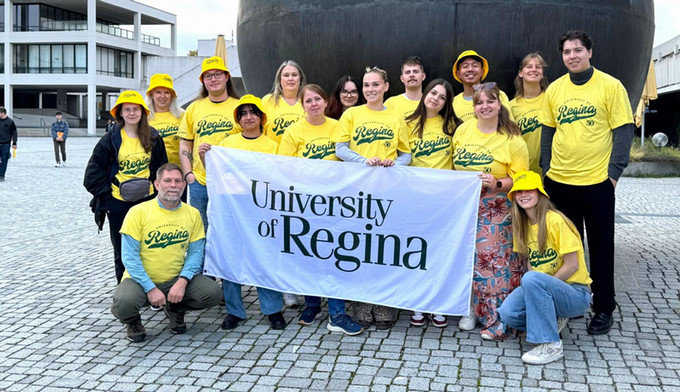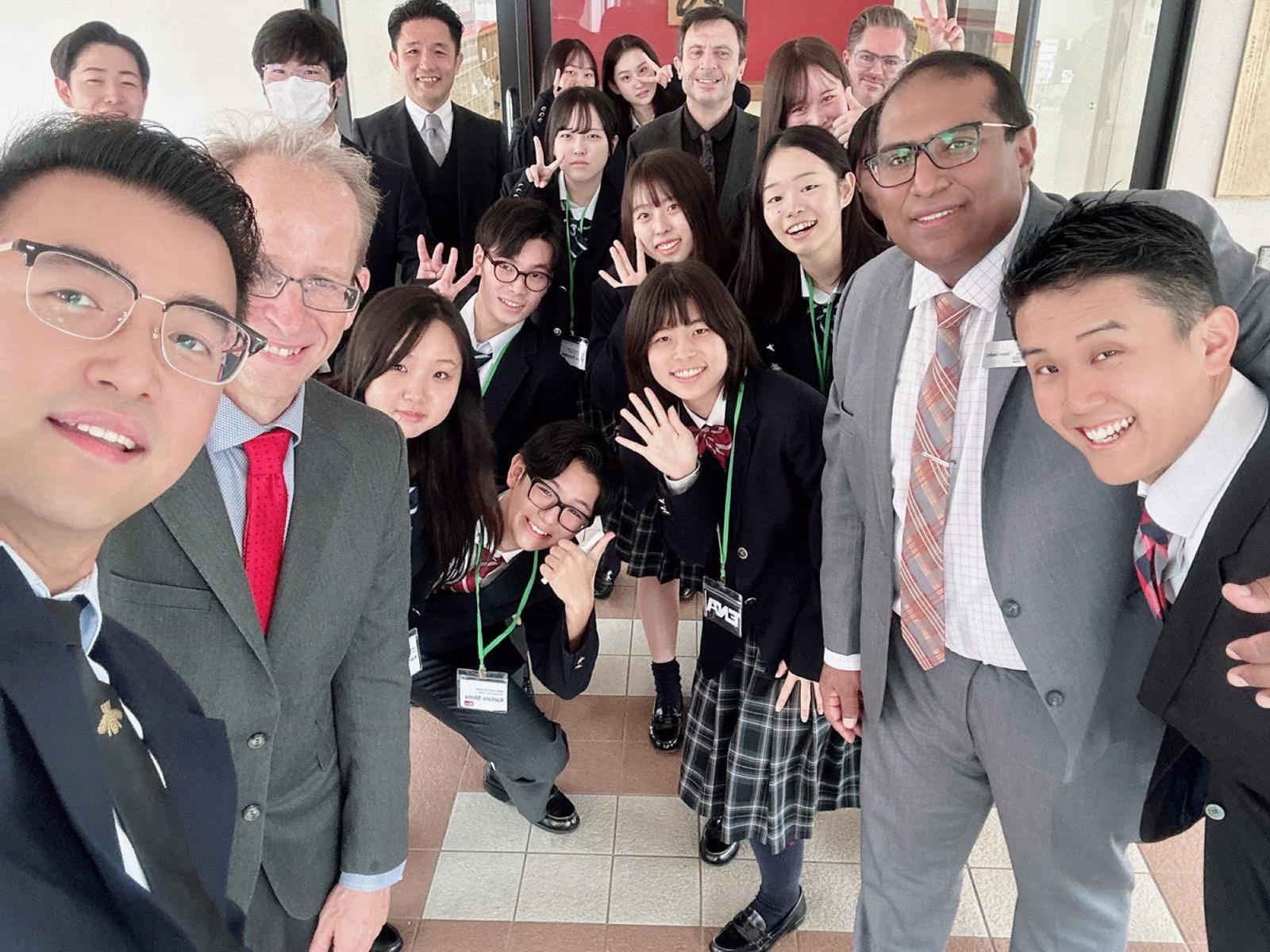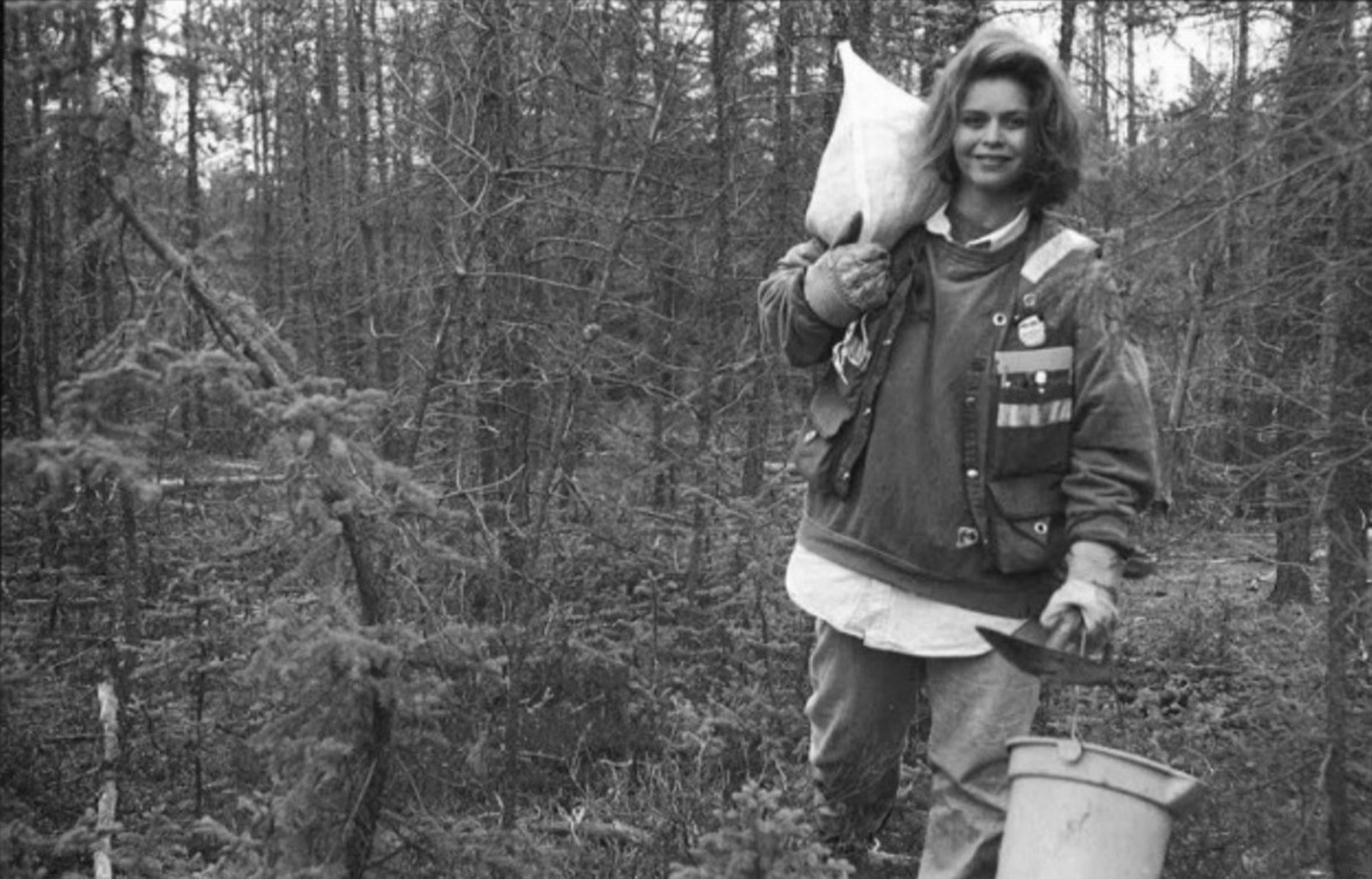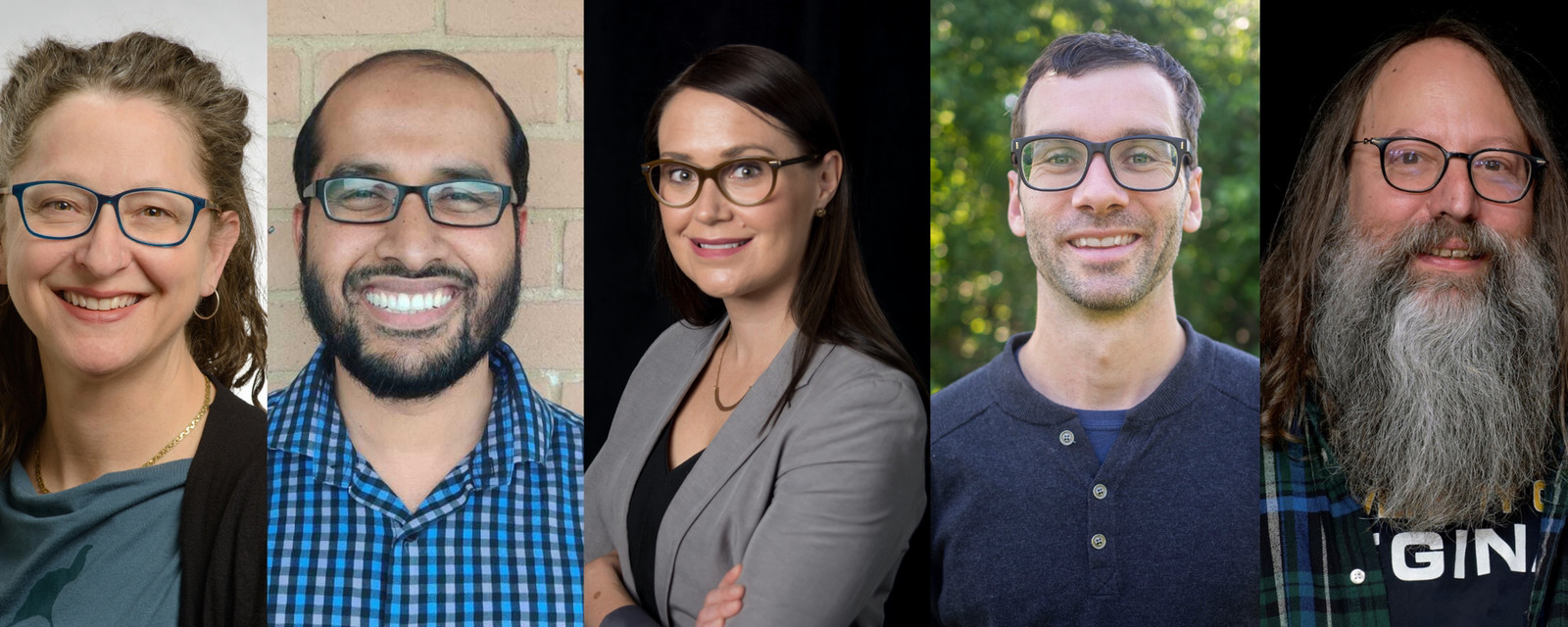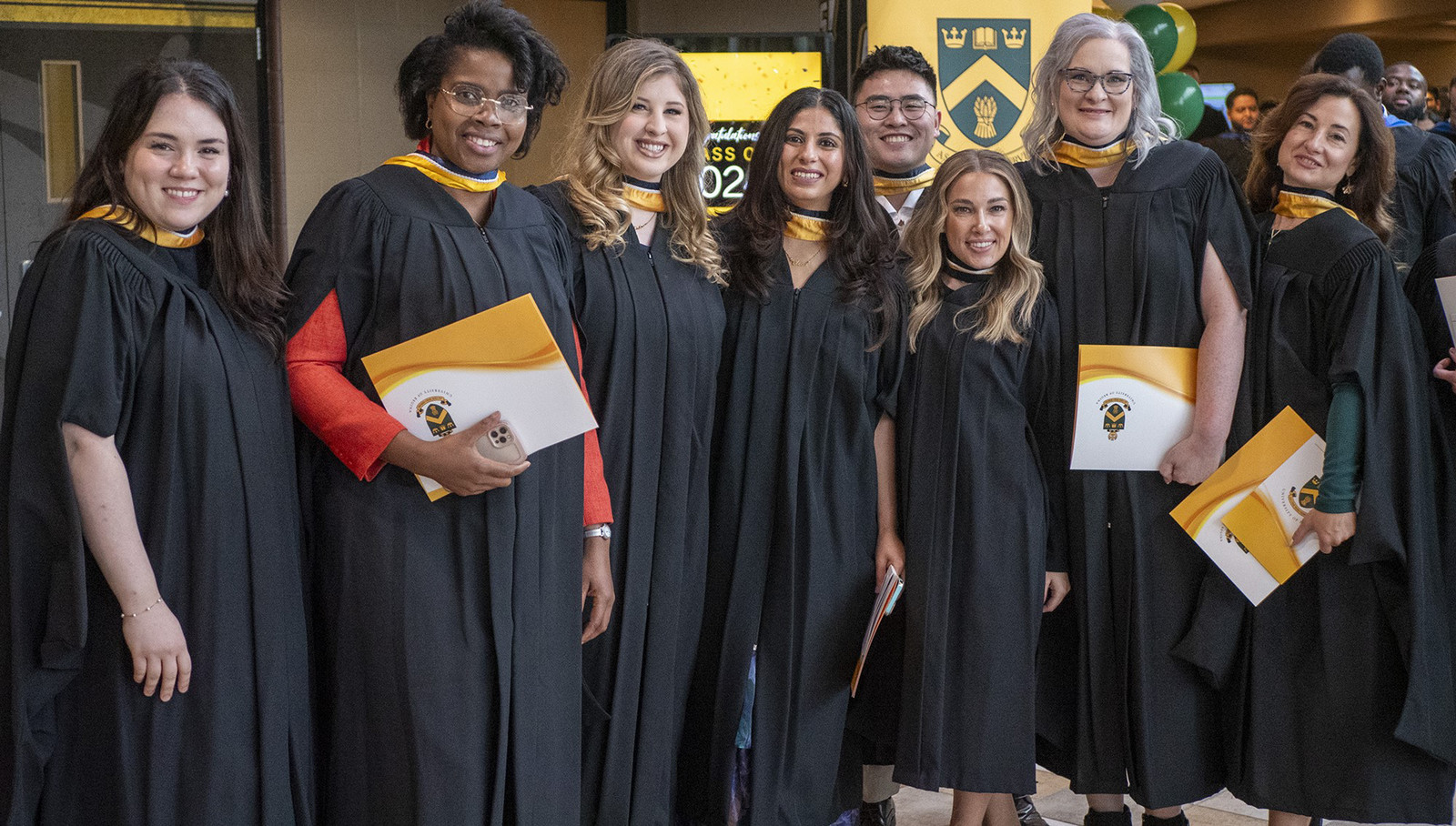Earlier this semester, a group of students from the Faculty of Arts and the Faculty of Science travelled to Germany for a week of immersive experiential learning that included sightseeing in Regensburg, trying delicious traditional Bavarian food, learning some biology and geology, and reflecting on the past at many of Germany’s historical sites. On top of those once-in-a-lifetime experiences, they gained globally informed critical thinking skills and experienced hands-on learning in a new country.
The trip abroad was part of the Study Abroad: Liberal Arts and Science course, which offers a blend of topics typically only offered individually by the Faculties of Arts, MAP, and Science.
Travelling to Germany for a study abroad class has changed the way I will approach my future studies. Being able to learn through experience taught me that not everything can be understood through readings and lectures. — Olivia Johnson, psychology student
Dr. Mel Hart, course instructor and Associate Dean of Science (Student Experience & Engagement) says that she, along with co-instructors Dr. Susan Johnston and Dr. Tobias Sperlich, wanted to create a unique interdisciplinary experiential learning opportunity that allowed students from different faculties to connect with peers from other disciplines.
“We recognized that this could also be an excellent chance for students, who had gone through the remote learning experience during COVID, to establish the friendships that many weren't able to form in the distance learning environment,” says Hart.
Bon Voyage!
After a long day of travel, the group finally arrived in Regensburg, Germany!
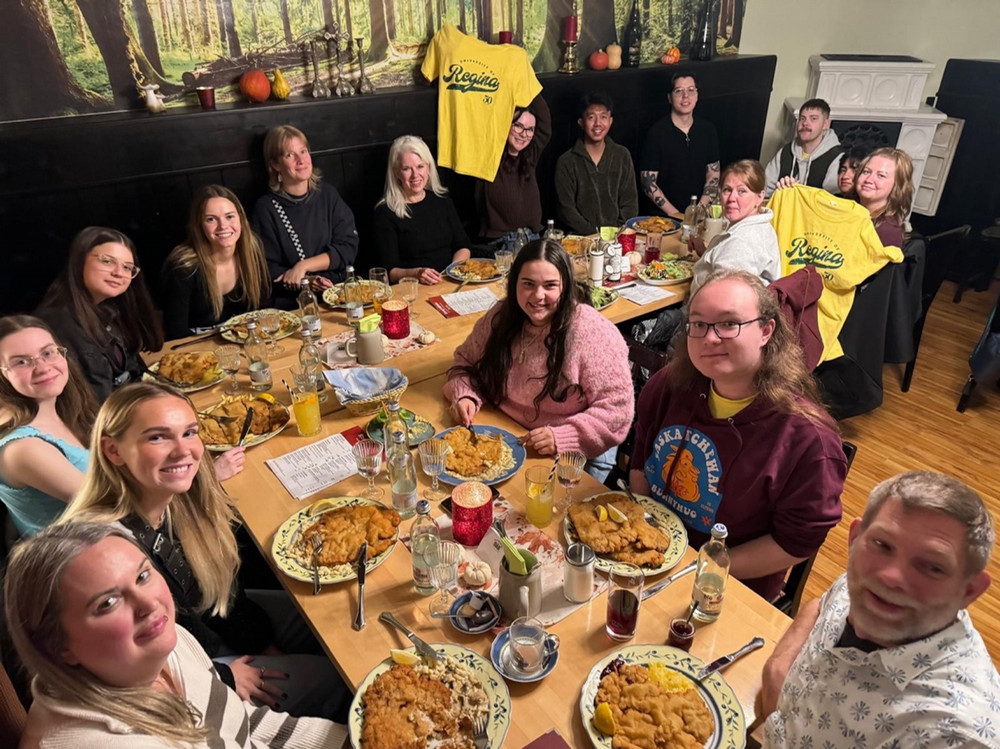
Day 1: A trip across the ocean and a traditional Bavarian dinner. Credit: Photos provided by Chloe Argue.
“The architecture in Regensburg was very beautiful and unique. I loved the train ride, it was a blast,” says psychology student Kristin Tokaryk. “I also loved the scenery; it was very beautiful and the people are friendly. It’s a very relaxed environment.”
Diving into the culture and history that Germany has to offer
The group kicked off their first full day in Germany with a guided study tour through the UNESCO World Heritage Site of Regensburg’s Old Town, and a visit to the Regensburg Museum of History.
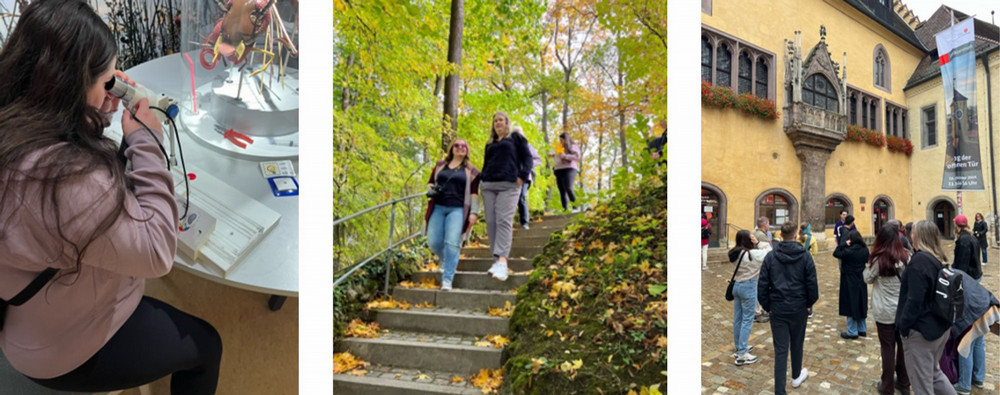
Day 2: The group began to explore Regensburg, Germany. Credit: Photos provided by Chloe Argue.
“The tour was really good. I was really impressed with the students because they were very attentive and asked great questions,” says Dr. Tobias Sperlich, Associate Dean, Faculty of Arts. “The museum was a bit quirky because it is a little old fashioned, but it is in an old castle.”
A breathtaking cathedral
The group continued to explore Regensburg and visited the Imperial Diet buildings in the morning. In the afternoon they went to St. Peter’s Cathedral – a crowd favourite!

Day 3: The group visited the Imperial Diet buildings and St. Peter’s Cathedral. Credit: Photos provided by Chloe Argue.
“The Cathedral was definitely my favourite part of the day. The pictures I took didn’t do it justice – the details and how enormous it is,” says psychology student Jessica Christopherson. “It was breathtaking, you have to be there to experience it.”
The other U of R
The time came to visit the U of R … the University of Regensburg, that is!
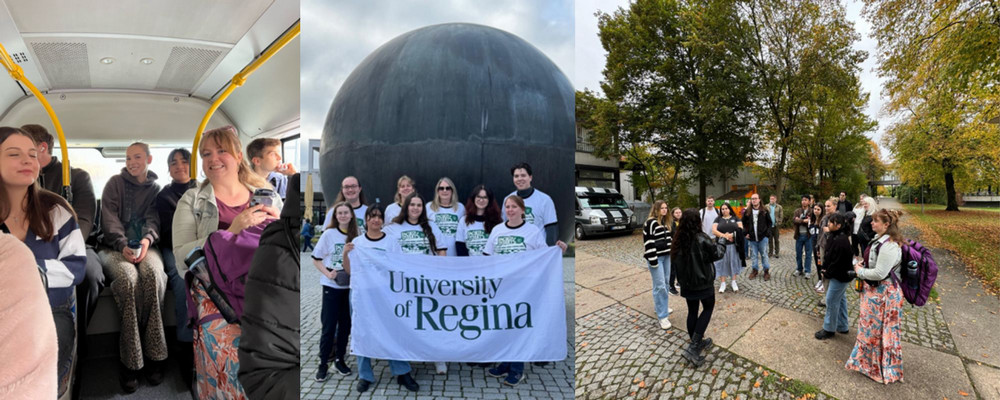
Day 4: The group visited the University of Regensburg campus. Credit: Photos provided by Chloe Argue.
“The University of Regensburg reminded me of the University of Regina, there were lots of parallels,” says computer science student Quinn Schwabe. “Like all of the different buildings being separate but joined at the same time, the same faculties, and the pace of the students is the same as us.”
A day to reflect and remember
Germany’s history is, of course, rich and varied, but includes a dark chapter that humanity forgets at its peril. A visit to the Flossenbürg Concentration Camp Memorial Site had a deep impact on the group, who took some time to reflect and remember those who lost their lives and those that took them.
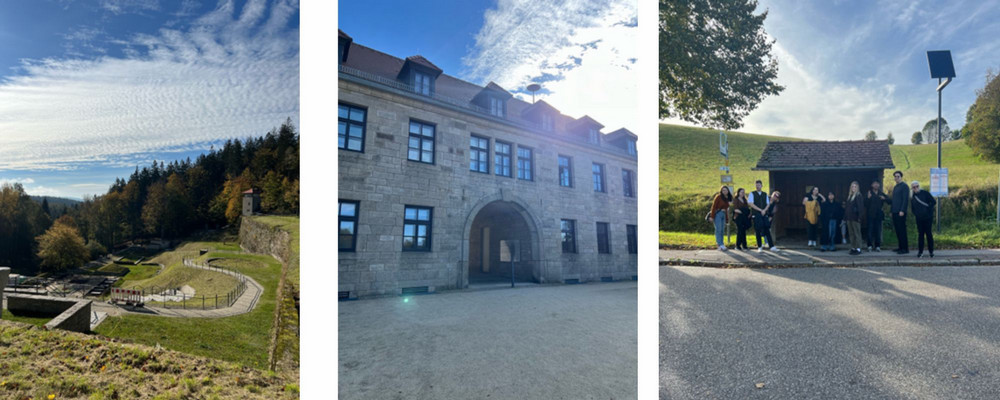
Day 5: The group made their way to the Flossenbürg Concentration Camp Memorial Site. Credit: Photos provided by Chloe Argue.
“Coming out of high school I had what I would call ‘Remembrance Day fatigue.’ Our productions were large and grand and you were forced to attend. I personally sang in a few things. It was all very ceremonial and detached. After that, I had no inclination to participate in any Remembrance Day services,” says English student Liam Widdup. “After today, seeing how real the impact was, seeing faces, seeing names especially, it made it feel more real. We don’t have much like that at home. People get caught up in tradition and ceremony. They forget the real people who died. They forget what really matters.”
A day of classical music and concerts
Another day of exploring Regensburg! The group spent the morning at Neupfarrplatz, which included an archaeological site and a medieval Jewish quarter. After that, they attended a seminar on classical music and a classical concert at Theatre Regensburg.
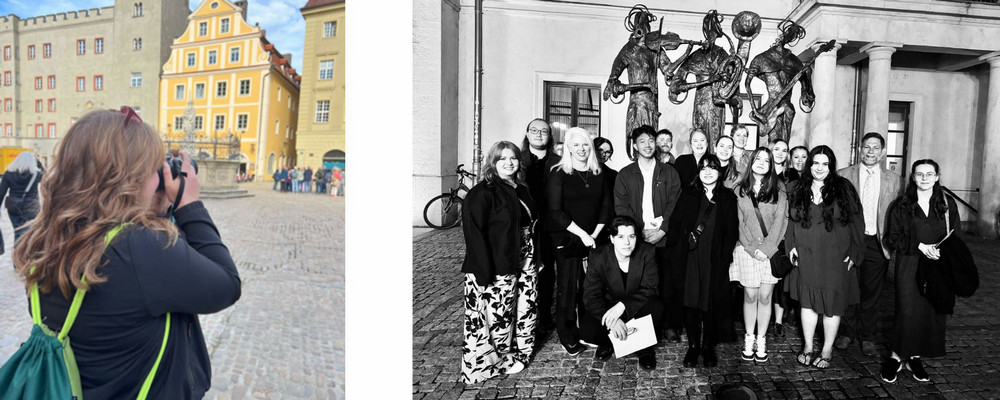
Day 6: The group spent most of the day learning about and listening to classical music. Credit: Photos provided by Chloe Argue.
“I would live in Regensburg, the architecture is beautiful,” says psychology student Erika Reichel. “It would be cool to just bike everywhere in the city.”
A trip across the Danube Gorge
The group started off their busy day with a visit to the Befreiungshalle Hall of Liberation. After that they got on a boat in Kelheim and travelled down the Danube Gorge, and ended with a visit to the Weltenburg Monastery.

Day 7: The group hit the water and went on a boat trip from Kelheim through the Danube Gorge to Weltenburg Monastery. Credit: Photos provided by Chloe Argue.
“This was my favourite part of the trip, the entire day was amazing,” says history student Drew Josvanger. “I would say tied for first place is my little solo moment walking in the town of Flossenburg - the residential areas, the cemetery, and the hilltop ruins.”
One final day in Regensburg
On their final full day in Germany, the students had time to explore on their own and use the local library, museum, and art gallery spaces to do research for their final projects. In the evening, the group met up for one last dinner at a traditional Bavarian restaurant.

Day 8: The group spent the final day in Germany exploring Regenburg’s local cultural spaces and working on their final projects. Credit: Photos provided by Chloe Argue.
“Travelling to Germany for a study abroad class has changed the way I will approach my future studies,” says psychology student Olivia Johnson. “Being able to learn through experience taught me that not everything can be understood through readings and lectures. For example, being at the Flossenbürg concentration camp gave me a more realistic perspective on the tragedy of the genocide of Jewish people and other targeted groups of people in society.”
Time to head home
After a full week of travelling, immersing themselves in Germany’s history and culture, sightseeing, and several once-in-a-lifetime opportunities, it was time to head back to Regina.
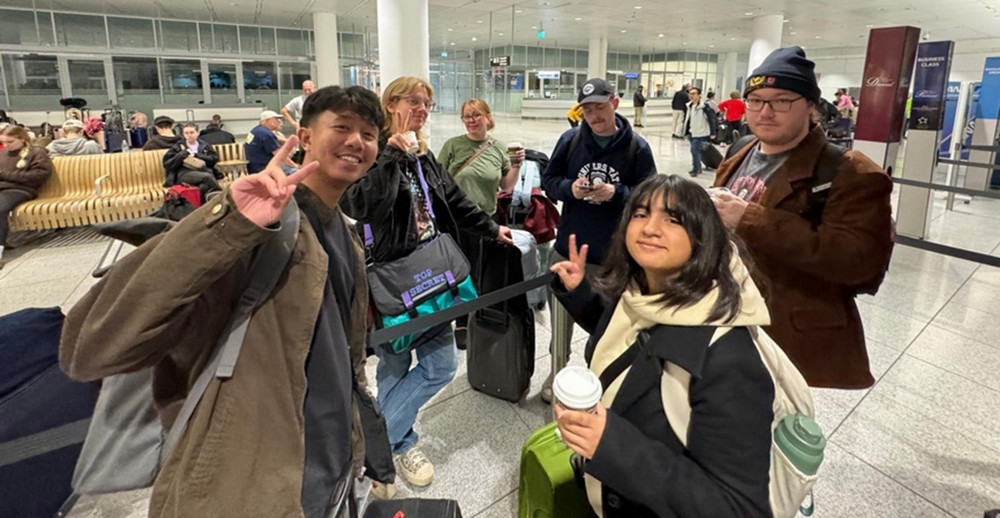
Day 9: It was time for the group to head home. Credit: Photos provided by Chloe Argue.
“Over the brief time in Germany, I saw how the students fully embraced the opportunity and recognized, with gratitude and humility, that they were part of a unique offering. They formed connections with one another, readily took in all the learning opportunities, and really made the trip their own,” says Dr. Hart. “By the end of the trip, the students struck me as having an exciting collection of individual and shared adventures that bolstered their confidence, and gave them a new perspective on life.”
Ready for an experience of a lifetime?
UR International’s Study Abroad and Global Mobility office facilitates many exciting options which allow University of Regina students the opportunity to study abroad:
- Exchange (4-8 months) – For the cost of University of Regina tuition, students can receive an excellent education while exploring unique cultures and gaining invaluable insights about themselves and the world around them. With hundreds of active partnerships with institutions around the globe, the opportunities are nearly endless!
- Faculty-led study tours (1-2 weeks) – This program allows faculty members to get engaged in an immersive learning experience with their students by incorporating an international experience into one of their classes.
- Summer programs (2-6 weeks) – Many partner institutions offer creative, interactive short-term programs over the summer months.
- Global internships – Internships, practicum placements, and fieldwork opportunities completed abroad offer students a unique and invaluable opportunity to gain hands-on experience in an international context.
UR International is committed to making international opportunities as accessible as possible. Scholarship programs – including the Saskatchewan Innovation Opportunity Scholarship and the Global Education Scholarship programs - provide eligible students with up to $2,000 to help fund their international experiences.
For more information about UR International’s programs, visit Study Abroad and Global Mobility or email study.abroad@uregina.ca.
Banner image: The group showing off their U of R pride in Germany! Credit: Photo provided by Chloe Argue.
About the University of Regina
2024 marks our 50th anniversary as an independent University (although our roots as Regina College date back more than a century!). As we celebrate our past, we work towards a future that is as limitless as the prairie horizon. We support the health and well-being of our 17,200 students and provide them with hands-on learning opportunities to develop career-ready graduates – more than 92,000 alumni enrich communities in Saskatchewan and around the globe. Our research enterprise has grown to 21 research centres and 9 Canada Research Chairs. Our campuses are on Treaties 4 and 6 - the territories of the nêhiyawak, Anihšināpēk, Dakota, Lakota, and Nakoda peoples, and the homeland of the Michif/Métis nation. We seek to grow our relationships with Indigenous communities to build a more inclusive future.
Let’s go far, together.
